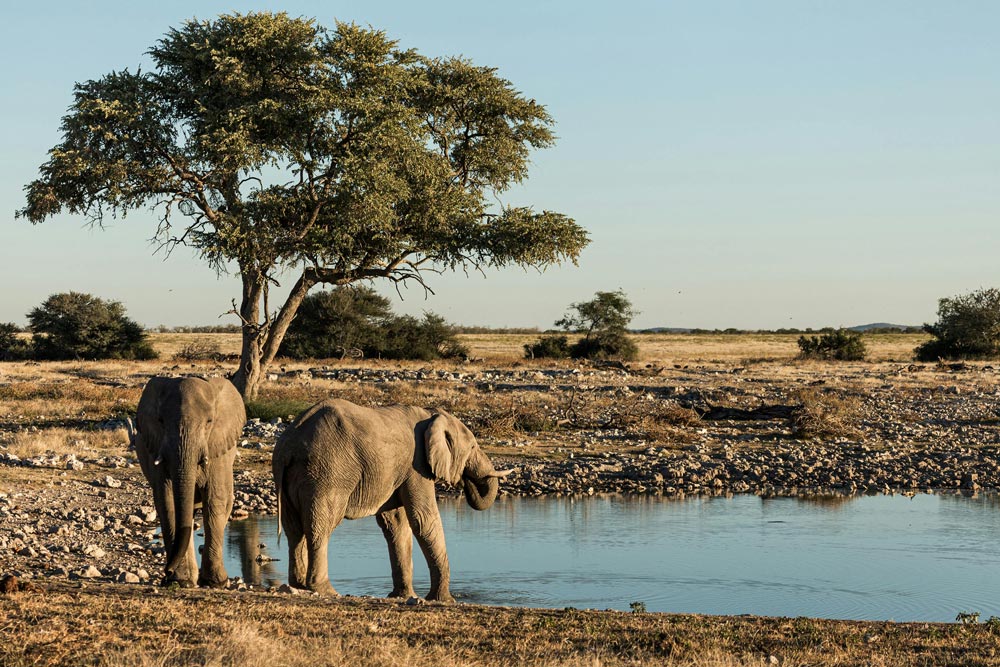Namibia's Plan to Slaughter 700 Wild Animals Sparks Outrage Amid Drought Crisis
Matthew Russell
Namibia’s decision to cull over 700 wild animals, including elephants, zebras, and hippos, has triggered intense debate among conservationists and animal rights groups.
The government, under pressure to address a worsening drought and food insecurity, maintains that the culling will provide much-needed meat to rural communities. But critics argue that the move sets a dangerous precedent for wildlife management and raises serious ethical concerns.

Namibia plans to kill 723 wild animals, including elephants and zebras.
A Government in Crisis
Namibia, grappling with its worst drought in a century, declared a state of emergency earlier this year. Nearly half of the country’s 2.5 million people are experiencing food insecurity, with most food reserves depleted, according to CBC News. Faced with these dire conditions, the Ministry of Environment, Forestry, and Tourism (MEFT) announced a plan to cull 723 animals to reduce competition for dwindling grazing and water resources. The meat, officials say, will be distributed to communities most affected by the drought.
According to a press release from MEFT, the culling will involve 83 elephants, 300 zebras, 30 hippos, 60 buffaloes, and other species, with most of the killings set to occur in Namibia’s national parks.
MEFT spokesperson Romeo Muyunda defended the plan, stating that it is not merely about feeding people but a conservation measure.
“Wildlife culling is a conservation measure taken by the wildlife authority in the country,” he said.

The cull is meant to reduce grazing pressure during the country's worst drought.
Conservationist Backlash
Despite the government’s rationale, conservationists have voiced strong opposition, accusing Namibia of using the drought as an excuse to exploit its wildlife. A coalition of 14 conservationists and scientists released a report questioning the environmental and humanitarian assessments behind the plan, reports Africa Geographic. The report claims the cull is politically motivated, designed to boost the government’s standing ahead of upcoming elections.
John Grobler, a Namibian environmental journalist, said, “We are calling upon the Namibian government to desist from attacking our wildlife and instead embrace resources and expertise that assist local people without destroying natural heritage.”
This sentiment was echoed by People for the Ethical Treatment of Animals (PETA), which condemned the plan as “shortsighted and cruel.” In a statement to Newsweek, PETA’s senior vice president Jason Baker warned that culling elephants could devastate entire herds and escalate human-animal conflicts.
The Political Angle
The timing of the cull, just before national elections, has raised suspicions. Critics allege that the government is targeting rural regions where ruling party support is waning, such as Kavango and Caprivi. Izak Smit, of Desert Lions Human Relations Aid, suggested the government is using the distribution of game meat as an election strategy.
“The latest move by the government is an election ploy where meat seems to be earmarked for contested constituencies,” he told Africa Geographic.
The government denies these accusations, with Muyunda responding, “The drought is not manufactured. Its impact is tangible in Namibia, and ignoring that would be catastrophic for conservation.”

Elephants, hippos, and zebras are among the animals targeted for slaughter.
Economic Impact on Tourism
The culling has also drawn concerns about the potential impact on Namibia’s tourism industry, which contributes significantly to the economy. Namibia’s national parks attract thousands of tourists annually, many of whom come to see the very animals slated for slaughter. Conservation biologist Keith Lindsay told CNN that killing animals in protected areas could harm Namibia’s image as a wildlife conservation leader and damage its tourism industry.
Photographic tourism, which is largely based on viewing elephants and other large mammals, plays a critical role in local economies.
“It may not sit well with tourists if they know the elephant or zebra they are photographing one day will be butchered for meat the next,” investigative journalist Adam Cruise told Africa Geographic.
Is Culling a Sustainable Solution?
Environmental experts also question the long-term sustainability of Namibia’s culling strategy. While MEFT insists that the cull is necessary to manage drought, conservationists argue that wildlife, particularly species like elephants, are better equipped to survive in arid conditions than livestock.
The culling plan has spurred calls for legal action. Conservation groups are exploring avenues to block the cull, arguing that it could set a dangerous precedent for other countries facing food insecurity. Critics argue that instead of culling wildlife, the government should focus on aiding farmers and communities affected by the drought in more sustainable ways.
Namibia’s government is facing a significant decision. Whether it presses ahead with the controversial cull or explores alternative solutions could have lasting consequences for the country’s wildlife and its place on the global stage.
Click below to take action for these animals!

